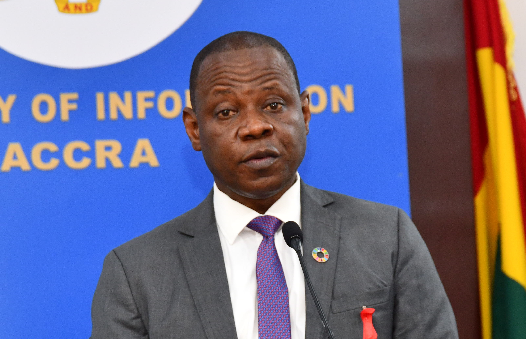The Ghana Health Service (GHS) has reported the first confirmed case of Mpox for the year 2024, following a press release dated October 3. The case involves a young male child from the Western North Region, with confirmation from the National Public Health and Reference Laboratory on October 1. This incident increases Ghana’s cumulative Mpox cases to 129 since the disease was first recorded in 2022. The child exhibited symptoms such as rash, fever, and general body pains, prompting medical personnel to suspect Mpox and adhere to proper protocols, including sample collection and patient isolation. Fortunately, the child is stable and has since been discharged, while health authorities have identified and placed 25 contacts of the patient under surveillance.
In 2022, Ghana experienced 120 Mpox cases, but the numbers decreased significantly in 2023 to just eight cases. The emergence of this first case in 2024 coincides with similar reports from several other African nations, such as the Democratic Republic of Congo, Nigeria, South Africa, and Côte d’Ivoire, which have also confirmed recent Mpox cases. On the continental front, the Africa Centers for Disease Control (CDC) classified Mpox as a Public Health Emergency of Continental Security (PHECS) in August 2024. In parallel, the World Health Organization (WHO) designated the outbreak as a Public Health Emergency of International Concern (PHEIC), emphasizing the global ramifications of the ongoing threat.
In light of the new Mpox case, the GHS has activated a series of public health measures aimed at curbing the spread of the virus. These measures involve enhanced surveillance tactics throughout all regions and teaching hospitals, alongside increased awareness and training for health workers concerning Mpox management. The mobilization of personal protective equipment (PPE) for medical staff is another crucial step to ensure the safety and preparedness of frontline workers. Contact tracing efforts have been intensified to closely monitor the 25 identified contacts of the confirmed case, providing oversight and support as necessary.
Dr. Patrick Kumah Aboagye, the Director-General of the GHS, has assured the public that the health system is adequately prepared to handle the outbreak. He emphasized the importance of timely reporting of suspected Mpox cases to healthcare facilities for swift diagnosis and treatment. To bolster the ongoing public health response, the GHS has activated its National Public Health Emergency Operations Centre (PHEOC), leading detailed investigations into the outbreak. Furthermore, various public health emergency management committees at national, regional, and district levels have been initiated to effectively coordinate response efforts.
In addition to direct clinical measures, the GHS is prioritizing public education and preventive strategies to inform citizens about Mpox and its symptoms. Continuous training and sensitization sessions for health workers nationwide focus on prevention, case management, and infection control practices, including barrier nursing techniques to limit the virus’s spread. The GHS is also enhancing surveillance at key points of entry, such as borders and airports, ensuring that potential new cases can be detected early and managed effectively.
By implementing these comprehensive public health strategies, the Ghana Health Service aims to mitigate the potential impact of the Mpox outbreak and safeguard public health. The proactive communication from health officials, combined with community participation, will be vital in managing this latest health challenge in Ghana’s healthcare landscape. The GHS remains committed to closely monitoring the evolving situation and adapting its response as necessary to protect the health and safety of the population.


